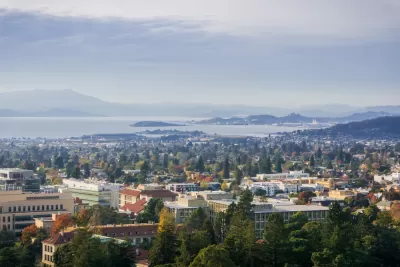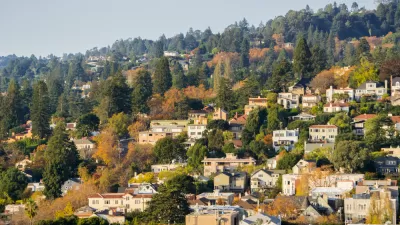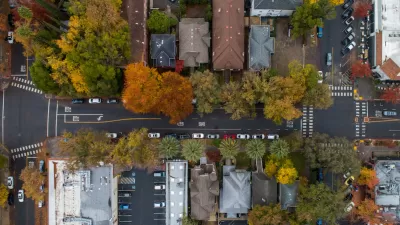The city of Berkeley, famed for its radical left politics in the 1960s, is now considered a bastion of anti-development obstructionism. Those politics could be changing, however.

Ariel Gans reports on efforts in Berkeley to potentially unlock the land use status quo that has held control of local politics in the city for decades.
According to Gans, "members of the Berkeley City Council aim to further tackle the housing crisis by potentially permitting triplexes in single-family neighborhoods."
The City Council voted on Tuesday to pursue a study into the proposal. The City Council is not currently proposing any zoning changes, as made clear on the Twitter account of Councilmember Lori Droste, who Gans describes as "the leading proponent of the study."
Droste's track record on the Berkeley City Council includes introducing the Green Affordable Housing package, "which works to remove the parking requirement for developments that included affordable housing, thus incentivizing residents to live closer to transit and bringing much-needed affordable housing to Berkeley more quickly," according to Gans.
The recent actions of the Berkeley City Council stand in contrast to positions taken by the city's mayor in 2018 and recent debates about density.
FULL STORY: Berkeley Considering Zoning Reform to Tackle Housing Shortage

Manufactured Crisis: Losing the Nation’s Largest Source of Unsubsidized Affordable Housing
Manufactured housing communities have long been an affordable housing option for millions of people living in the U.S., but that affordability is disappearing rapidly. How did we get here?

Americans May Be Stuck — But Why?
Americans are moving a lot less than they once did, and that is a problem. While Yoni Applebaum, in his highly-publicized article Stuck, gets the reasons badly wrong, it's still important to ask: why are we moving so much less than before?

Research Shows More Roads = More Driving
A national study shows, once again, that increasing road supply induces additional vehicle travel, particularly over the long run.

Judge Halts Enforcement of Anti-Homeless Laws in Grants Pass
The Oregon city will be barred from enforcing two ordinances that prosecute unhoused residents until it increases capacity and accessibility at designated camping sites.

Advancing Sustainability in Los Angeles County Schools
The Los Angeles County Office of Education’s Green Schools Symposium brings together educators, students, and experts to advance sustainability in schools through innovative design, climate resilience strategies, and collaborative learning.

Using Old Oil and Gas Wells for Green Energy Storage
Penn State researchers have found that repurposing abandoned oil and gas wells for geothermal-assisted compressed-air energy storage can boost efficiency, reduce environmental risks, and support clean energy and job transitions.
Urban Design for Planners 1: Software Tools
This six-course series explores essential urban design concepts using open source software and equips planners with the tools they need to participate fully in the urban design process.
Planning for Universal Design
Learn the tools for implementing Universal Design in planning regulations.
City of Moreno Valley
Institute for Housing and Urban Development Studies (IHS)
City of Grandview
Harvard GSD Executive Education
NYU Wagner Graduate School of Public Service
City of Cambridge, Maryland
Newport County Development Council: Connect Greater Newport





























